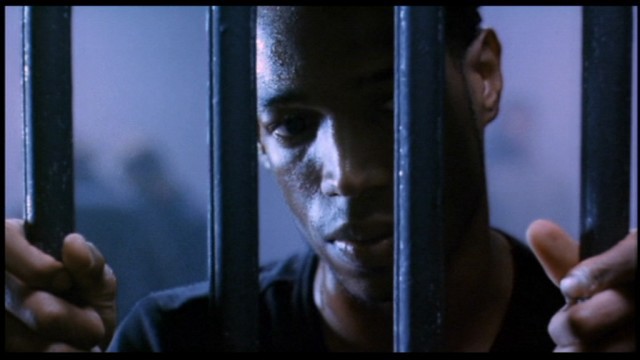Blood, Bail, or Jail

The Deep South is a rough place to get caught up in the criminal justice system — we all learned that from Requiem For A Dream, right? — but a judge in Alabama has come under fire for adding a new element to the proceedings. He gave offenders in his courtroom who could not afford to pay their fines the chance to pay in blood, instead.
“Good morning, ladies and gentlemen,” began Judge Wiggins, a circuit judge here in rural Alabama since 1999. “For your consideration, there’s a blood drive outside,” he continued, according to a recording of the hearing. “If you don’t have any money, go out there and give blood and bring in a receipt indicating you gave blood.”
For those who had no money or did not want to give blood, the judge concluded: “The sheriff has enough handcuffs.”
Efforts by courts and local governments to generate revenue by imposing fines for minor offenses, particularly from poor and working-class people, have attracted widespread attention and condemnation in recent months. But legal and health experts said they could not think of another modern example of a court all but ordering offenders to give blood in lieu of payment, or face jail time. They all agreed that it was improper.
As the judge has learned, people tend to get touchy about their vital bodily fluids. And who wants to go through any medical procedure under duress? It’s creepily reminiscent of the way various regimes have used imprisoned persons for experiments.
I sympathize, though, to the degree that the judge was trying to create a way out for people trapped in an unforgiving, dysfunctional penal system, one that, as we’ve recently seen, can cost people their livelihoods as well as, sometimes, their lives. (This is assuming of course that the judge meant well. Just call me Pollyanna O’Sunshine, I guess.)
The Times also provides some interesting historical background on the idea, because, indeed, there is nothing new under the sun:
Ordering defendants to give blood used to be more commonplace, particularly during wartime, according to “Flesh and Blood,” a history of blood transfusions and organ transplantation by Susan Lederer, a professor of medical history at Yale.
In the mid-20th century, judges in several places around the country, including Honolulu after the Pearl Harbor attack, ordered people convicted of traffic violations to give blood or offered blood donations as an alternative to a fine. More commonly, prisoners would receive cash incentives or reduced sentences for giving blood. As late as 2008, a judge in Broward County, Fla., offered traffic offenders the choice of a fine, community service or a blood donation.
Can we please reform our ridiculous bail system without resorting to such weirdly invasive and inappropriate tactics? Because seriously, there has got to be a better way.
Support The Billfold
The Billfold continues to exist thanks to support from our readers. Help us continue to do our work by making a monthly pledge on Patreon or a one-time-only contribution through PayPal.
Comments